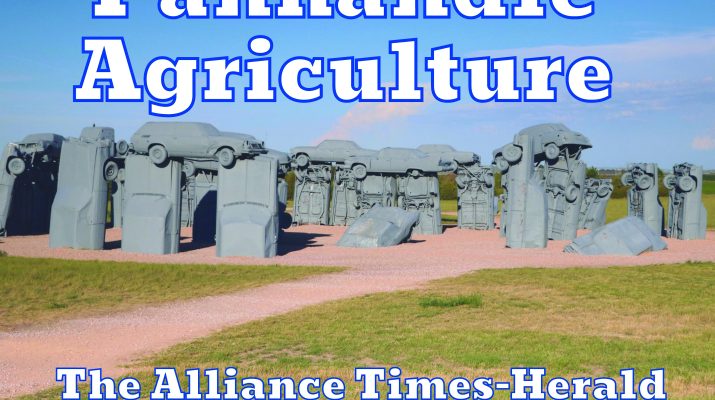By Chabella Guzman
Communications Specialist
The University of Nebraska-Lincoln (UNL) Institute of Agriculture and Natural Resources (IANR) Roads Scholars Tour visited the Panhandle on Aug. 3. The group of 20-plus faculty stopped at Nebraska businesses and historical sites along the tour, with destination stops at Nebraska extension centers and labs.
The scholars were joined by UNL Chancellor Rodney Bennett on their travels across Nebraska. Where he has visited with members of the communities along the stops.
“The message has been consistent, and that is a complete devotion, love, and respect for the state of Nebraska and the university system, which is important,” Bennett said.
UNL is a land-grant university having been established in 1862. Bennett said he is a disciple of the land grant mission.
“The fundamental mission of elevating the entire citizenry of the state of Nebraska, as we (UNL) is supported by taxpayer dollars, so every aspect of our work, early childhood education, literacy, food quality, agriculture whatever it might be and how do we bring that to the communities? The extension operations bring it here. To make it much more accessible to Nebraska citizens,” he said.
The Panhandle Research Extension and Education Center has several faculty studying plants, rangelands, irrigation, cattle, ag economics, and more. Along with the faculty, interns, graduate students, and post-doctorate students work on research with the specialist.
Bennett’s goal is to continue supporting agriculture and natural resources while growing the pipeline of college-ready students and graduate education.
“Graduate education is very important and critical. Investing in graduate education is really important, and attracting the best graduate students not just in the U.S. but really from across the world. We’ve seen an international presence of graduate students on this trip, and that makes me very happy,” Bennett said.
The Roads Scholars visited a mint research plot at the Scottsbluff extension. Graduate students Deepak Ghimire and Sujani De Silva and visiting scholar Kasun Pathirage are studying and measuring nitrous oxide gas emissions with a trace gas analyzer. Mint, like corn, uses reasonable amounts of nitrogen fertilizer.
Ghimire said the study will allow them to recommend to farmers the optimum nitrogen fertilizer rate for the best yield, save on fertilizer costs, and reduce environmental impacts.
The tour group made more than 10 stops across the state, where they met with agriculturists and business members in Nebraska. All while developing relationships, something Bennett sees as important for him and the university.
“Meeting Nebraskans, developing a rapport, and building trust to build the future is vital.”

